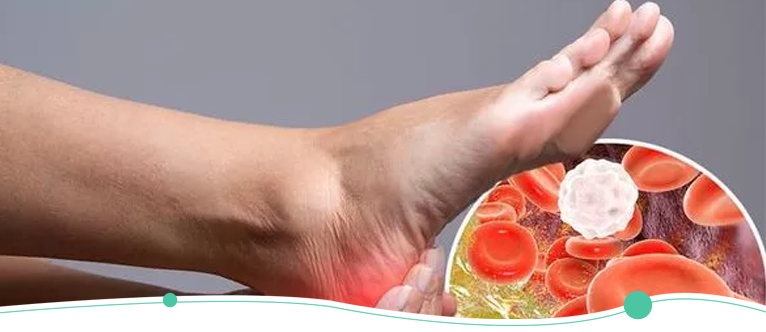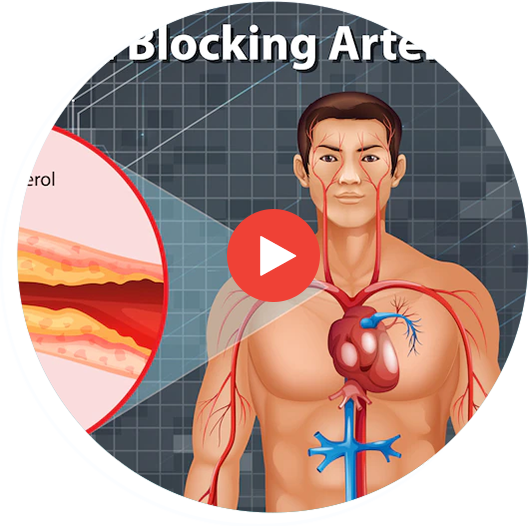

TELMDCARE
TELMDCARE
Is covered by many popular
insurance plans

TELMDCARE
Causes Of High Cholesterol
High cholesterol occurs due to the following reasons.
- Type 2 diabetes
- Menopause
- Thyroid issues
- Kidney problems
- A high-sugar diet
- Stationary lifestyle
- Liver problems
- Alcohol
- Pregnancy
- Stress
- Unfiltered coffee
- Side effects from unrelated medications
While cholesterol is necessary to build healthy cells, excessive levels of cholesterol begin accumulating in arteries. Since Cholesterol is a waxy substance, it can form plaques in blood vessels, constricting the flow of blood. These plaques can lead to chest pain, prevent blood flow to the heart, and cause a heart attack or even a stroke. The cholesterol that builds up in the blood vessels is LDL or low-density lipoprotein. However, HDL, or high-density lipoprotein is beneficial for the body, and even helps clear LDL cholesterol from the blood and delivers it to the liver.
Diseases Caused By High Cholesterol
Other medical conditions may also increase the chance of elevated cholesterol levels. Depending on these conditions, it may cause your blood vessels to become blocked. These medical conditions include:
- Type 2 diabetes
- High blood pressure
- Coronary heart disease
- Stroke
- Peripheral arterial disease
Causes Of High Cholesterol In Children
- Obesity
- Diet
- Family History

TELMEDCARE
What we treat
We treat a variety of acute and chronic conditions and provide expert medical advice and guidance for our patients.
Symptoms Of
High Cholesterol?
High cholesterol does not usually cause symptoms. However, it can lead to various health conditions, such as heart attacks and strokes.
Risk Factors for
High Cholesterol
High levels of LDL cholesterol can be linked to a poor diet and an unhealthy amount of trans fats and saturated fat.
A simple blood test can check if a child has high cholesterol levels. This test should be conducted only on children with a family history of high cholesterol or coronary diseases. The American Academy of Pediatrics recommends:
- Medical treatment for elevated LDL higher than 190 mg/dL, if changes of diet have had no effect and children who aren’t at risk of cardiovascular disease.
- Medical treatment for elevated LDL higher than 160 mg/dL, where the family history indicates cardiovascular disease or other conditions such as hypertension, smoking, obesity.
- Medical treatment for elevated LDL higher than 190 mg/dL 130 mg/dL for diabetic patients.

What Are the Symptoms of
Management Of High Cholesterol In Children
People can manage high cholesterol levels by consuming foods low in saturated fat and trans fat. Reduced-fat milk is recommended for children between the ages of 12 months and 2 years. Avoid the following foods:
- High trans fats foods
- Saturated fats
- Tobacco
- Sugar
- Whole milk and 2% milk
- Fried foods
- Regular exercise
- Healthy weight
- Substituting unsaturated fat for saturated fat.

Medication
- An almost constant urge to urinate.
- A burning sensation while emptying your bladder.
- Passing small amounts of urine despite an empty bladder.
- Discolored, dark, bright pink, or reddish urine.
- Pungent urine
- Discomfort or pain in the pelvic region.
TELMDCARE
As Seen On

TELMDCARE
Sign Up
Our best online doctors on call ensure that the services we provide are adequate, high quality, and affordable.
Get in touch with us today for more details or Sign Up for a quick consultation.
TELMDCARE
FAQs About Cholesterol
Why Should I Be Concerned About Cholesterol?
High levels of cholesterol can lead to cardiovascular diseases, such as heart disease. It can also cause blood to flow less efficiently and lead to heart attacks and chest pain. Over time, cholesterol can accumulate in the walls of the arteries, which can cause oxygen levels to drop and prevent blood from reaching the heart.
What's the Difference Between "Good" and "Bad" Cholesterol?
When it comes to cholesterol, HDL is known as “good” cholesterol. LDL, on the other hand, is referred to as “bad” cholesterol because it can lead to the development of hardened and unstable plaques in the walls of your arteries, which increases your risk of heart disease. When it comes to cholesterol levels, it’s important to get the total cholesterol, HDL, and LDL numbers.
How Much Cholesterol Is Too Much?
Maintaining a total cholesterol level of 200 mg/dL is the best way to reduce the risk of heart disease. High levels of LDL are known to trigger various problems, such as heart attacks and stroke. In the past, guidelines focused on lowering LDL to levels that were considered safer. Lowering cholesterol is just one component of a comprehensive strategy that can help lower your risk of heart disease. HDL, on the other hand, helps protect the heart from disease, so a higher number is better. A level of less than 40 is considered a risk factor. Your telemedicine doctor for high cholesterol will first assess your current level of risk and come up with a personalized strategy that will help lower it. This may include changes to your lifestyle, medications, and blood pressure. Your doctor will also suggest ways to lower your cholesterol level. Your doctor will then suggest a specific percentage that you should aim for in order to lower your cholesterol level. This will help you determine the type of treatment that will be most effective for you. Some people may require treatment if their Triglyceride levels are at borderline high or above 200 or more.
Can I Lower My Risk for Heart Disease If I Lower My Cholesterol?
Having low total cholesterol and low LDL can lower your risk of heart disease. However, a higher HDL number is better.
What Makes My Cholesterol Levels Go Up?
High levels of cholesterol can be caused by various factors, such as eating a lot of red meat and dairy products. Being overweight can also raise bad cholesterol levels. Women going through menopause may see an increase in bad cholesterol levels.
What Can I Do To Lower My Cholesterol Levels?
To lower your cholesterol levels, make sure that you eat healthy and low-fat food. You can also reduce the amount of fat and cholesterol in your diet by taking off the skin and the fat from meat, fish, and poultry. You should also eat a variety of whole grains, such as pasta, rice, and cereals. You should get at least 30 minutes of moderate exercise a day. If you are overweight, you should stop smoking and lose weight.



